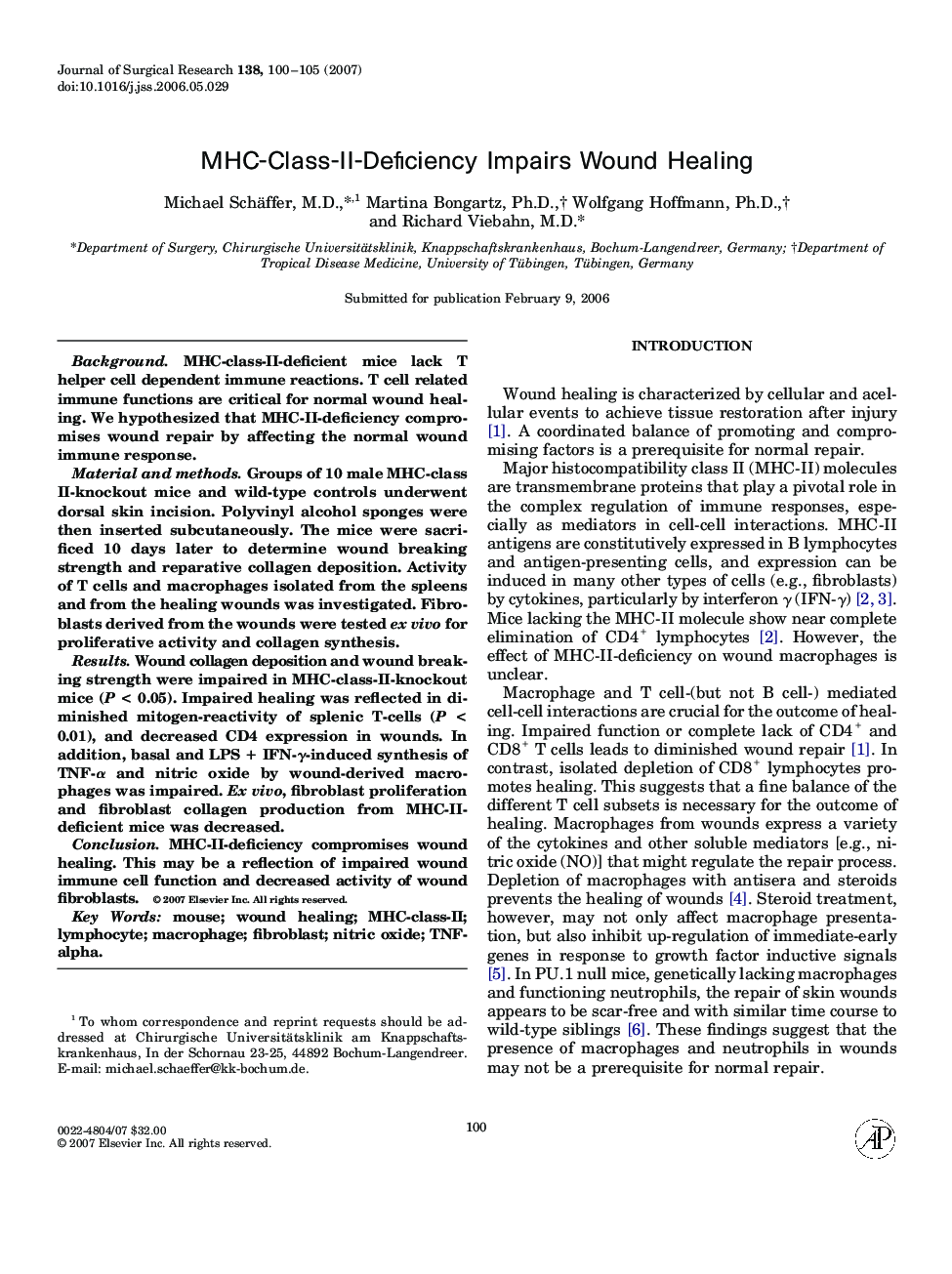| Article ID | Journal | Published Year | Pages | File Type |
|---|---|---|---|---|
| 4304970 | Journal of Surgical Research | 2007 | 6 Pages |
BackgroundMHC-class-II-deficient mice lack T helper cell dependent immune reactions. T cell related immune functions are critical for normal wound healing. We hypothesized that MHC-II-deficiency compromises wound repair by affecting the normal wound immune response.Material and methodsGroups of 10 male MHC-class II-knockout mice and wild-type controls underwent dorsal skin incision. Polyvinyl alcohol sponges were then inserted subcutaneously. The mice were sacrificed 10 days later to determine wound breaking strength and reparative collagen deposition. Activity of T cells and macrophages isolated from the spleens and from the healing wounds was investigated. Fibroblasts derived from the wounds were tested ex vivo for proliferative activity and collagen synthesis.ResultsWound collagen deposition and wound breaking strength were impaired in MHC-class-II-knockout mice (P < 0.05). Impaired healing was reflected in diminished mitogen-reactivity of splenic T-cells (P < 0.01), and decreased CD4 expression in wounds. In addition, basal and LPS + IFN-γ-induced synthesis of TNF-α and nitric oxide by wound-derived macrophages was impaired. Ex vivo, fibroblast proliferation and fibroblast collagen production from MHC-II-deficient mice was decreased.ConclusionMHC-II-deficiency compromises wound healing. This may be a reflection of impaired wound immune cell function and decreased activity of wound fibroblasts.
